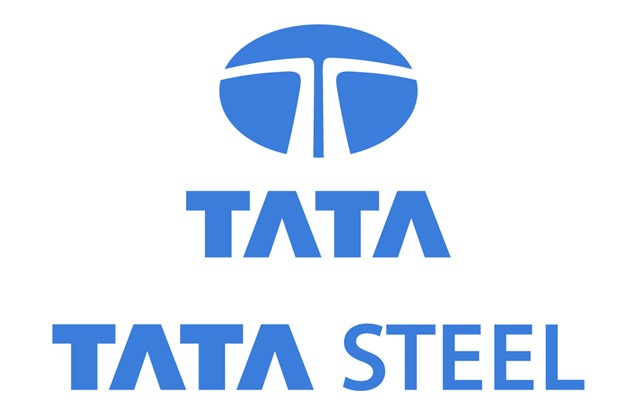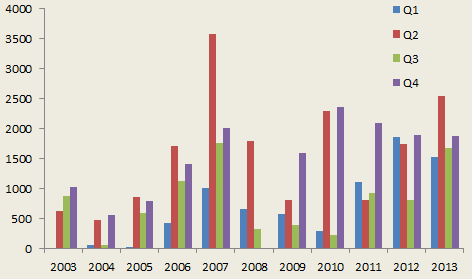Perpetual bonds arrive in China
Post on: 29 Июнь, 2015 No Comment

Analysis & Opinion
(This story was originally published in IFR Asia on April 6)
* Regulator set to approve first local bond without maturity
* Law forbids structure, but government blessing may change that
* Deal paves way for Basel III debt from Chinese banks
By Carrie Hong
April 9 (IFR) — China’s medium term notes regulator is poised to allow the country’s first perpetual bond sale, adding another popular global funding instrument to the country’s fast-growing domestic market.
The move could also set a template for hybrid capital instruments for China’s banks at a time when the country is embracing Basel III rules.
Overseas issuers and investors have shown an overwhelming interest in perpetual bonds in recent years, but China’s company law bars the issuance of bonds without fixed maturities.
However, state-backed China Merchants Group is planning to offer Rmb1bn (US$161m) of perpetual medium-term notes in a deal that promises to break the mould.
According to multiple sources, China Merchants Securities and Citic Securities are leading the transaction and are in the process of seeking approval from the National Association of Financial Market Institutional Investors (NAFMII), the regulator of China’s domestic commercial paper and MTN markets.
Mirroring the structure seen in the overseas markets, the planned perpetual will come with call options to allow the company to redeem the notes after five, 10 and 15 years and a step-up at the first call date, according to two sources close to the transaction.
The coupon for the first five years of the bonds will be determined through bookbuilding. At the first call date, the coupon will reset to the initial spread over the prevailing five-year government bond, plus an additional 200bp.
SETTING A TEMPLATE
The proposed transaction lengthens the NAFMII’s list of innovative products, but also suggests that companies can issue perpetual bonds in China without violating current laws.
That may be particularly important for Chinese lenders, who are looking to develop new capital instruments as they transition to Basel III standards. Perpetual bonds with loss-absorption and convertibility features are among the hybrid capital instruments that will count as non-core Tier 1 capital overseas, and Chinese banks have expressed an interest in introducing similar structures.
According to sources familiar with the matter, NAFMII has expressed its support to the transaction because it is keen on introducing innovative tools to China’s bond market.
Any similar issue from China’s financial sector, however, will require the blessing of the country’s banking regulator.
Apart from the company law, regulations governing MTNs also require the notes to have a set maturity. However, as long as NAFMII gives a green light, I don’t see any obstacle in issuing such paper, said a source.
In China, MTNs are not totally regarded as corporate bonds, which means there is more room for innovation, said a lawyer at a domestic law firm. As long as the regulator is happy with it, there can always be different interpretation of laws that have been written many years ago.

NAFMII declined to comment.
NOT EQUITY
Under International Financial Reporting Standards, perpetual bonds count as equity as long as they do not have a set maturity and the call is an option of the issuer.
However, according to two sources, the proposed perpetual MTNs will still be counted as debt, instead of equity, on China Merchants’ balance sheet. China Chengxin International Credit Rating has rated the issuer and the bonds at AAA.
Without the benefit of equity treatment, companies will have few reasons to issue perpetual bonds other than the greater flexibility that comes with the lack of a fixed maturity. They are also likely to cost more relative to selling standard five-year MTNs.
China Merchants Group is eager to co-ordinate with the NAFMII to bring in innovative fundraising tools. Besides, a significant step-up in coupons in the first call date, basically implies strongly that it will be called in the fifth year, said a source.
Many DCM bankers believe the issuer will call the deal on the fifth year as the step-up will push the coupon to a very high level, unless there are several interest rate cuts from the People’s Bank of China within the next five years.
If China Merchants Group does not call the deal, the funding cost will be way too high in the later years. As for investors, they can get a high coupon for five years from a Triple A rated issuer. a banker said.
The market response to the PRC’s first perpetual is still unknown at this stage, but China Merchants has already got a backup plan. It is looking to sell seven-year MTNs of Rmb2bn simultaneously with the proposed perpetual deal. It may sell more seven-year papers if investor interest for the perpetual is tepid.
Founded in 1872, China Merchants Group is subordinated to the State-owned Assets Supervision and Administration Commission of the State Council. Its three core businesses include transportation and infrastructure, financial investment and management, and property development and management. (Reporting By Carrie Hong; Editing by Steve Garton)














